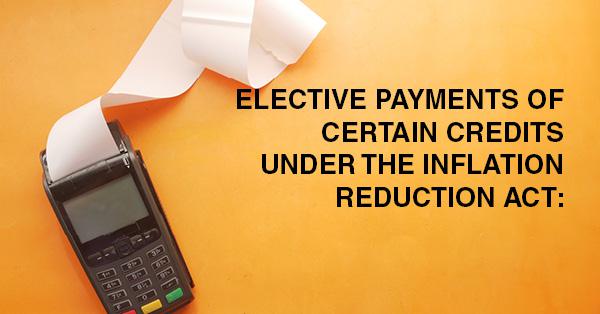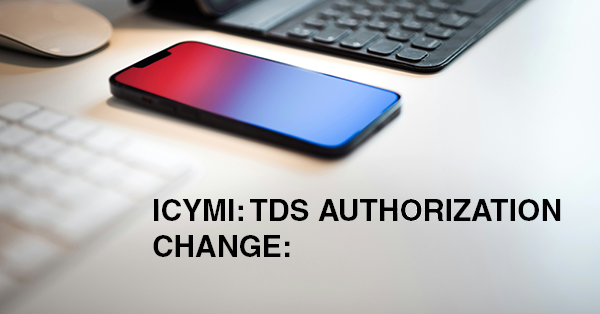ELECTIVE PAYMENTS OF CERTAIN CREDITS UNDER THE INFLATION REDUCTION ACT:

Tax-exempt and governmental entities, including those that were generally unable to use tax credits previously, can now benefit from clean energy tax credits using new options enabled by the Inflation Reduction Act of 2022. Elective pay makes certain clean energy tax credits effectively refundable. With elective pay, for tax years beginning after December 31, 2022, an applicable entity that qualifies for an applicable clean energy tax credit can choose to make an elective payment election, which will treat certain credits as a payment against their federal income tax liabilities rather than as a nonrefundable credit. This payment will first offset any tax liability of the entity and any excess will be refundable.
Applicable entities generally include tax-exempt organizations, state and local governments, Indian tribal governments, Alaska Native Corporations, the Tennessee Valley Authority and rural electric cooperatives.
The Internal Revenue Service has issued proposed regulations describing rules and definitions concerning elective payments for the clean energy tax credits. The IRS has also issued temporary regulations regarding the pre-filing registration requirements for taxpayers planning to make an elective payment election.
The pre-filing registration process must be completed, and a registration number received, prior to making an elective payment election or an election to transfer eligible credits. Applicable entities will need their own Employer Identification Number (EIN) or Tax Identification Number (TIN) to complete the pre-filing registration process. Applicable entities cannot use or borrow the EIN of a related entity. The IRS is continuing to work to implement the elective payment process and will provide more information, including about the pre-filing registration process, in late 2023.
For more information on elective pay, the IRS has posted Frequently Asked Questions that provide an overview and discuss eligibility, applicable credits, steps for making an election, and other rules.




